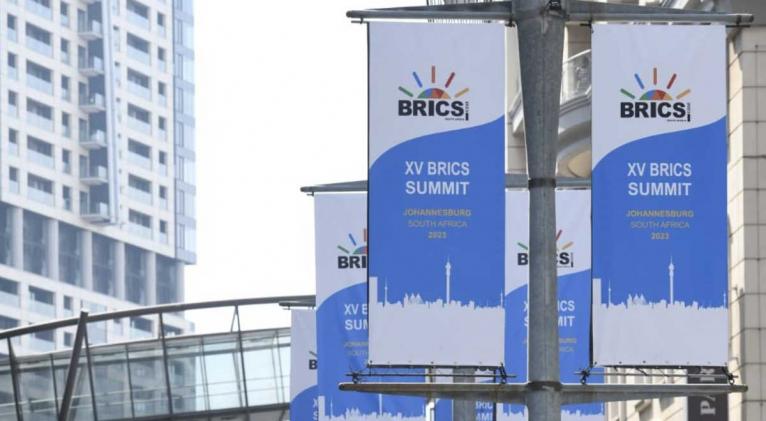BRICS Cooperation Mechanism Gives Hand to Global South
especiales

The 15th BRICS summit has kicked off in Johannesburg, South Africa, on August 22, and the following year will bring the summit to Kazan, the capital of Russia’s Tatarstan region.
As of now, more than 40 countries openly demonstrate their willingness to join the informal grouping, as the current BRICS host South Africa recently stated. In this respect, it’s worth asking what the BRICS is and what the BRICS is not.
The BRICS that started as a grouping of fast-growing economies not only withstood the test of time, but also fully transformed its identity since the first summit in 2009. Remaining an informal exclusive group, the BRICS pushes forward discussion on more than 30 distinct topics including several ones not presented in the agenda of the G20, namely regional security, tourism, and culture. It does not make the BRICS an alliance of any kind—it lacks formality including any form of sanctioning in a case of non-compliance with the decisions made on annual summits.
Neither the BRICS is a club for groundless discussions, as most of the multilateral decisions are implemented quite successfully, according to the results of a multi-year study conducted by a joint collective of Russia-Canada think-tanks, indicating average compliance surpassing 75 percent.
Also it would be too much to think of the BRICS in general and the BRICS-inspired multilateral institutions such as the New Development Bank—the group has never claimed to replace any of global organizations. The idea here is not to substitute but to compensate some of the most significant drawbacks of the international order.
The BRICS cannot promote obligatory decisions, but it has great potential in formulating the common ground in some spheres of high importance. I assume that the BRICS might be a suitable place to formulate new approaches to the Internet governance system reform, since the discussion on its key aspects (cybersecurity in particular) stagnates.
The abovementioned study shows that since the introduction of information technologies-related agenda to the BRICS in 2015, the average compliance score has surpassed 90 percent, indicating willingness of the member states to cooperate. China and Russia are the leading parties in this respect, contributing the most to the agenda development.
Taking into account a growing interest towards the BRICS from other countries of the world, it’s worth discussing the establishment of a new global partnership on the Internet governance reform with some “BRICS characteristics.” The BRICS might give a hand to those who would inevitably become the emerging forces in the Internet governance in decades to come, thanks to continuing economic transition and population growth—African and Latin American countries.
The brand-new partnership presents an attractive alternative to previously launched exclusive formats that mostly ignored the interests of the developing world. Voices from the Global South would grant recognition and support to the BRICS multilateral initiatives, among which might be the reform of some of the key Internet governance institutions including the Internet Corporation for Assigned Names and Numbers and the Internet Society, making them more transparent and accountable.
Also, the information security agenda might flourish without direct interference from the Western parties which intend to keep their privileged negotiation position during talks on cybersecurity and cyberwarfare.
Any tangible result is achievable if only the discussed agenda becomes the main working track within the broad BRICS agenda. South Africa’s presidency this year and forthcoming Russia’s presidency in 2024 will be a high time to start.














Add new comment